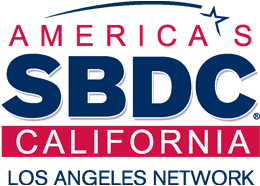April 20, 2012
You’ve seen the commercials that claim it’s easy to get free money from Uncle Sam to start your own business. You’ve heard people saying there are federal government grants available to help grow your business. But have you ever heard of anyone actually getting such a grant? There’s a reason for that: “The federal government does not provide grants for starting and expanding a business,” says SBDC Business Advisor Mary Anne Rooney.
What kinds of government grants do exist?
Rooney explains that grants from the federal government are only available to noncommercial organizations, such as nonprofits and educational institutions in areas such as medicine, education, scientific research and technology development. “The federal government also provides grants to state and local governments to assist them with economic development,” she says; perhaps this is one reason the myth of federal government grants for business persists.
Why is it such a pervasive belief among small business owners that there is “free money” out there to start or grow a business?
Some private companies have an effective marketing effort to promote “free money” (grants) to help small businesses, Rooney explains. In reality, these websites offer confusing messages and guide you to information that generally leads to loans to businesses. “Many times the words grants and loans are used in a synonymous way when they have different meanings,” says Rooney. (Unlike grants, loans must be repaid.) When in doubt, Rooney advises reminding yourself of the old adage, “If it sounds too good to be true, it probably is.”
What alternative sources of funds should small business owners consider?
“The most common means of financing a business are personal savings, family, friends, traditional financing, loans, grants and venture capital,” says Rooney. The Small Business Administration (SBA) participates in several loan programs designed for business owners who may have trouble qualifying for a traditional bank loan. The SBA’s basic 7(a) loan program provides loans for starting, acquiring or expanding a small business; its Certified Development Company (CDC) 504 Loan Program provides growing businesses with long-term, fixed-rate financing for major fixed assets, such as land and buildings; and its Microloan Program provides very small loans to startup and growing businesses through nonprofit community-based lenders. The SBA also offers specialized loans including export assistance loans, disaster recovery loans, loans for veterans and members of the military and more. Rooney recommends using the SBA.gov’s Loans and Grants Search Tool at www.sba.gov to find out more and learn which banks or lenders near you participate in SBA programs.
Are there other sources of grants for small businesses?
“Some business grants are available through state and local programs, nonprofit organizations and other groups,” says Rooney. “For example, some states provide grants for expanding child-care centers, creating energy-efficient technology or developing marketing campaigns for tourism.” There are also some local agencies that offer revolving loan fund programs or other specialized funding programs. The amount of grant money available depends on the business and the grantor. “Keep in mind that these grants are not necessarily free money,” says Rooney. “They usually require the recipient to match funds or combine the grant with other forms of financing such as a loan.”
Where can an entrepreneur find these grants?
Depending on your community, Rooney says, grants and other funding may be administered through the local economic development agency, women’s business centers, cities, counties and nonprofit agencies that assist businesses. She also recommends visiting kiva.org for more information. Finally, large corporations sometimes offer grants, typically tied to a marketing promotion. For instance, Rooney says Intuit offers a “Love a Local Business” grant where the winner receives $5,000.
What steps are typically involved in applying for private grants?
“Each grant opportunity will differ, and the business should take caution to comply with the instructions,” Rooney says. The initial steps could include submitting a letter of interest, writing a proposal based on the grant criteria or completing an application.
What can entrepreneurs do to improve their chances of getting private grants?
Whatever type of funding you’re seeking—whether a loan, grant or investment—Rooney says a well-developed business plan with detailed financial projections, a well-defined marketing plan, and detailed industry research information are critical to success: “SBDC Business Advisors can assist you with preparation of a plan and access to research information.”





